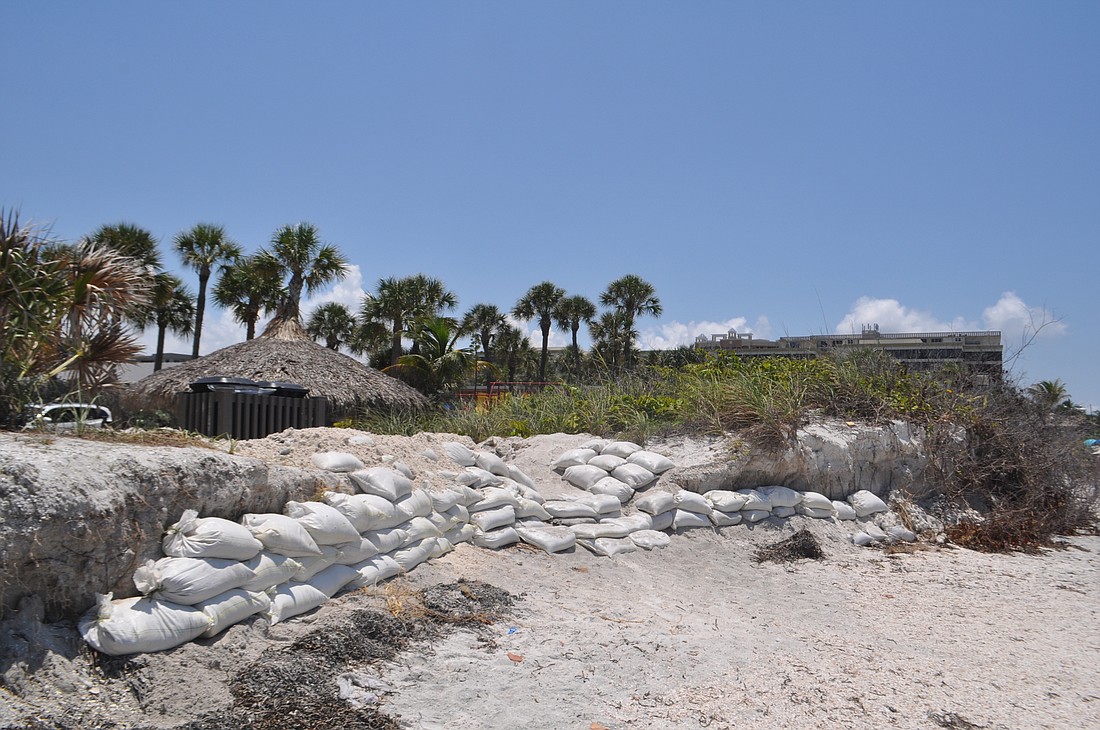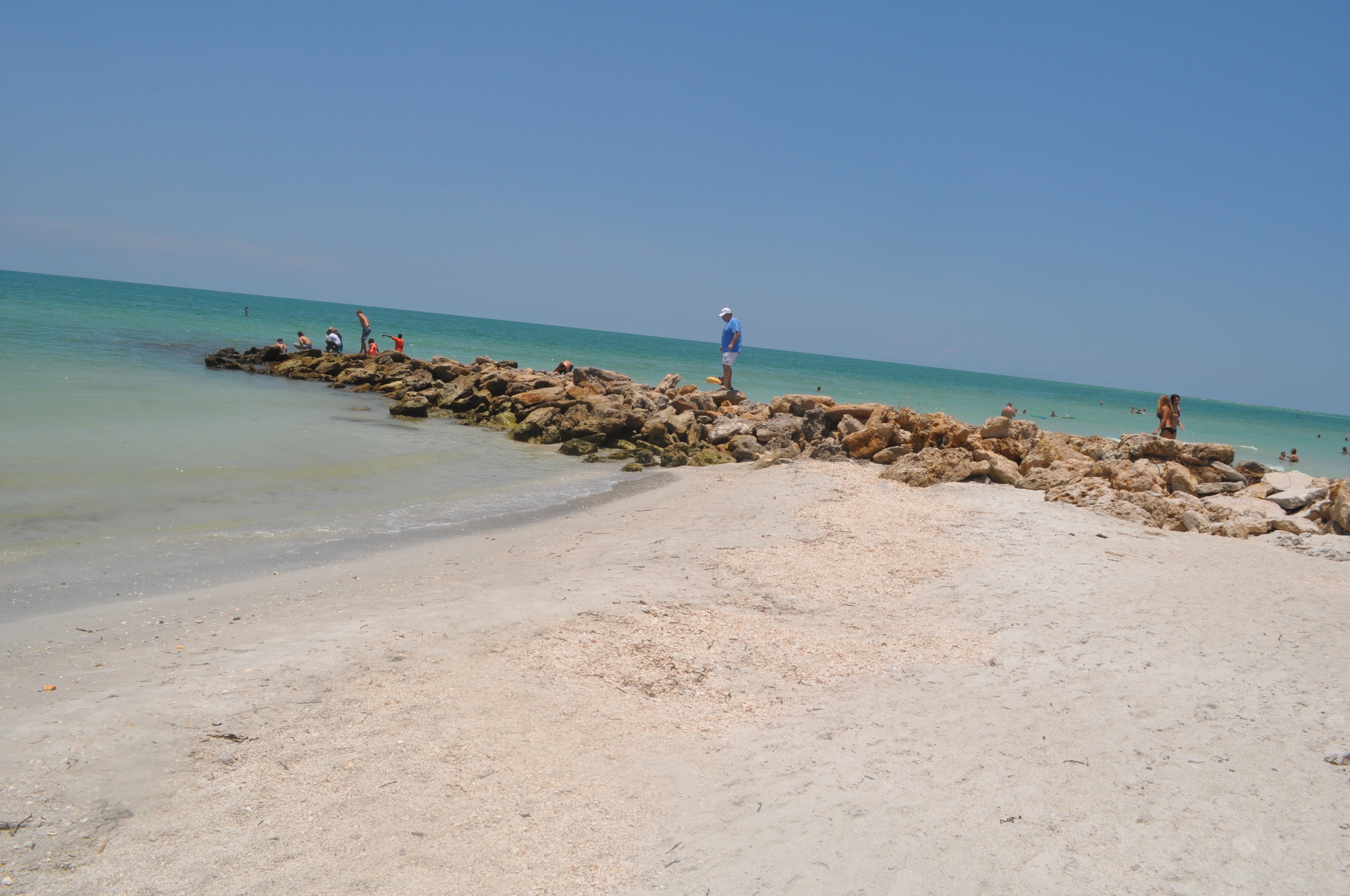- May 24, 2025
-
-
Loading

Loading

In 2014, in the midst of conflict between Lido Key and Siesta Key residents regarding the proposed dredging of Big Pass, the two barrier islands found common ground on a smaller project to replenish the Lido shoreline.
With support from Siesta residents, the city teamed up with the Federal Emergency Management Agency to repair damage to the shoreline incurred during Tropical Storm Debby in 2012. The renourishment, completed in 2015, was hailed as a success.
The Lido shoreline was wider than it had been in years. With short-term relief in place, the plan to dredge Big Pass to renourish Lido could follow its natural course without as much concern for how the beach would survive in the interim.
Then Tropical Storm Colin hit.
The city of Sarasota is still working to measure the sand lost in the storm, but Lido Key Residents Association President Carl Shoffstall says the difference is stark post-Colin.
“After the renourishment, from the Ritz down, (the sand) was way out,” Shoffstall said. “It was really nice.”
The beach hasn’t returned to the status quo before the Debby renourishment, but Shoffstall can point to big changes. A completely exposed rock jetty near Lido Beach Resort had been buried in sand after the Debby project.

A pile of sandbags sits along the dune line in front of the Suntide Island Beach Club — a necessary precaution to prevent water from flowing onto the property.
“I wish you could get us some beach, because it just tore ours up,” said Suntide employee Cheryl Shuster. “We didn’t have much to start with.”
The city and the U.S. Army Corps of Engineers are proceeding with the plan to dredge Big Pass, which would include restoration of the beach every five years for the next 50 years.
Shoffstall thinks that long-term plan should be accelerated.
“Just putting a little bit of sand out there every year is, to me, a total waste of taxpayers’ money,” he said. “They need to do this 50-year project.”
Assistant City Engineer Daniel Ohrenstein said it’s unlikely that another short-term project will take place to address the losses following Tropical Storm Colin. He said any efforts to add more sand would likely be folded into the next scheduled renourishment project. In this case, that’s the Army Corps Big Pass dredge.
“Just putting a little bit of sand out there every year is, to me, a total waste of taxpayers’ money.” — Carl Shoffstall
The timing of that project is still in question. No federal funds been allocated for the $23 million effort, and the Army Corps is still working with state agencies to get approval to begin the project once funding is secured.
In the meantime, there’s not much Lido residents can do to accelerate the timeline other than offer their encouragement to the city. Without a serious long-term plan for the Lido Key shoreline, Shoffstall fears the beach he calls home could be significantly threatened by a single storm.
“It’s not going to be a big one,” Shoffstall said. “It’s going to be a minor one that could really tear this up.”